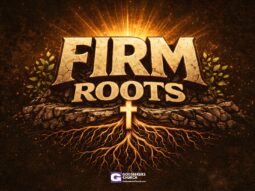All Scripture is God-breathed and is useful for teaching, rebuking, correcting and training in righteousness, so that the servant of God may be thoroughly equipped for every good work.
2 Timothy 3:16-17
God's Word was never meant to stay on the page. The Bible isn't a museum artifact to be admired from a distance, a philosophy to be debated, or a collection of interesting stories. Scripture is living and active, designed to leap from the page into our everyday decisions, conversations, and challenges. Yet too often, we treat the Bible like a theoretical textbook rather than a practical guidebook.
The gap between knowing and doing defines our spiritual maturity. Many believers can quote Scripture, win Bible trivia contests, and even teach others. But the accurate measure of spiritual growth isn't knowledge accumulation but its application in real-life situations. James warns that being hearers of the Word without becoming doers leads to self-deception. Knowledge without action creates spiritual illusions.
Scripture becomes powerful when we move it from our heads to our hands. Paul told Timothy that God's Word equips us for every good work. The Bible isn't just information for our minds. It's the transformation for our actions. When we face a difficult decision at work, Scripture provides wisdom. When relationships become strained, God's Word offers guidance for reconciliation. When temptation strikes, biblical truth gives strength to resist.
Jesus consistently emphasized practical application over theoretical knowledge. He concluded His most famous sermon by comparing two builders—one who heard His words but didn't act, another who heard and put them into practice. Only the second builder survived the storm. Jesus wasn't impressed by those who listened. He looked for those who lived out what they learned.
The early church demonstrated remarkable life change through applied Scripture. They didn't just study teachings about generosity—they sold possessions to care for one another. They didn't just learn about loving enemies—they prayed for their persecutors. They didn't just memorize passages about unity—they crossed social barriers to create inclusive communities. Their faith wasn't theoretical—it was thoroughly practical.
When my son was young, instead of a purple dinosaur, he was watching Psalty The Singing Songbook. Imagine like a thick bible with a face, arms, legs, and can sing. And does he have plety of songs - some of which we sing in church. Psalty always taught God's word and showed kids how to obey Him. Now, Psalty isn't a new idea. He's existed since the early 1980s as a way for the church to reach out to kids. Not sure where Psalty is now. Hopefully, not collecting dust somewhere. But for sure, Psalty was the walking Word to the kids of that generation.
Modern Christianity often suffers from application paralysis. We attend Bible studies, listen to sermons, and read Christian books, constantly taking in information. But without application, we become spiritually bloated yet practically malnourished. The solution isn't more Bible knowledge. It's intentional application of what we already know. Small steps of obedience matter more than vast stores of unused information.
Every Scripture passage invites personal response. When reading the Bible, ask: "What does this passage call me to do, change, believe, or become?" This simple question transforms Bible reading from passive consumption to active engagement. It might reveal a relationship that needs restoration, an attitude requiring adjustment, or a new step of faith waiting to be taken.
God reveals His truth to us gradually, often in proportion to our obedience. We sometimes pray for more revelation, precise direction, or profound understanding, but we neglect to apply what God has already shown us. Jesus said that those who put into practice the light they have receive more light. Obedience to current understanding opens the door to further insight. Application becomes the pathway to more significant revelation.
The Bible's practical guidance touches every dimension of life. It speaks to our career decisions, financial habits, parenting approaches, conflict resolution strategies, and priority systems. No area of life remains untouched by biblical wisdom. When we compartmentalize Scripture—treating it as relevant to our "spiritual lives" but not our daily decisions—we miss its transformative power in all aspects of life.
Applied truth creates compelling testimony. The most influential Christian witness isn't eloquent explanations of doctrine. It's transformed lives that demonstrate Scripture's impact. When others see us making tough ethical choices, responding to criticism with grace, or serving selflessly, they glimpse the difference God's Word makes. Our lives become living letters, read by everyone around us.
Godseekers, let's move from information to implementation. Time to be the Walking Word. Imagine what God feels when we consume His Word without applying it? His Scripture sits underlined in our Bibles but unemployed in our lives. Today, choose one biblical truth you already know and find a specific, practical way to apply it. Remember that truth isn't just something to believe—it's something to be lived.
Prayer
Heavenly Father, forgive me for treating Your Word as information to be studied rather than truth to be lived. Help me move beyond knowledge to application in every area of my life. Show me one specific way today that I can put Your truth into action. May my life demonstrate the power of Your Word not just in what I know, but in how I live. In Jesus' name, Amen.
Personal Reflection
- What Scripture have I learned repeatedly but consistently failed to apply?
- Which area of my life needs biblical principles applied most today?
Step of Faith
Today, I will identify one biblical principle I already know and take a specific, measurable action to apply it in a practical situation I'm currently facing.




